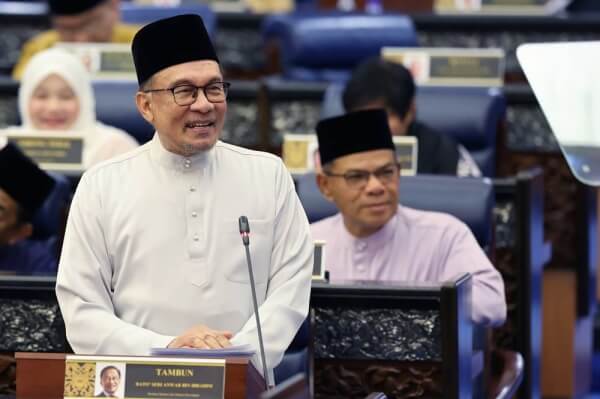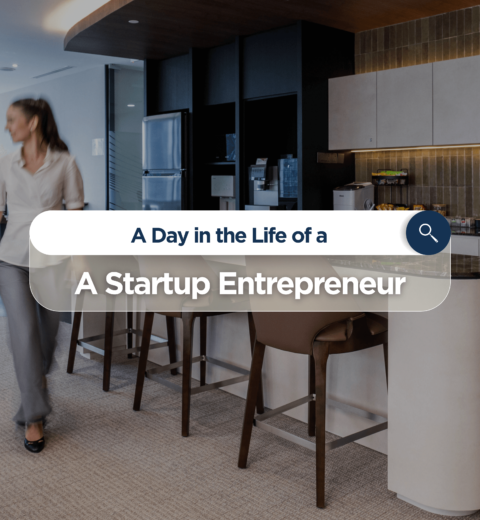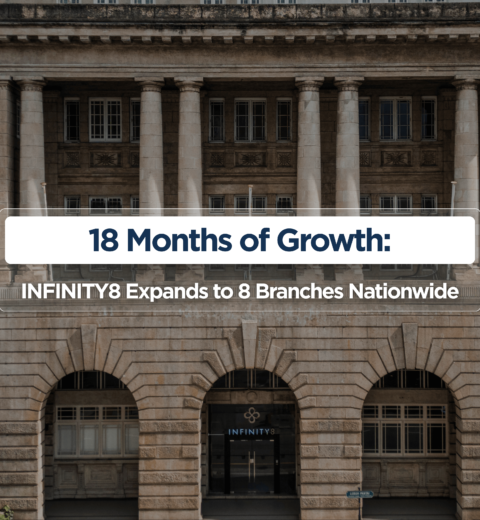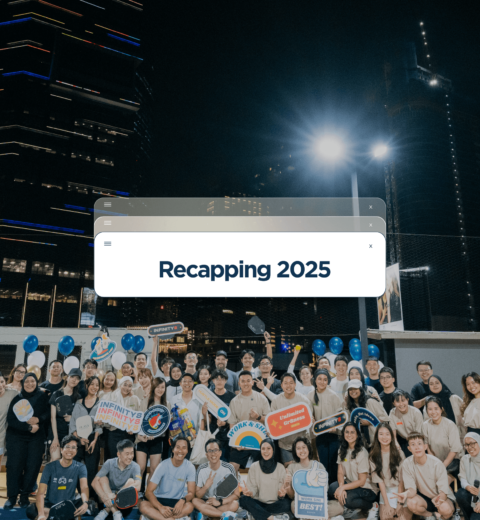
Unveiled by Prime Minister Dato’ Seri Anwar Ibrahim on 18 October 2024, the Madani Budget 2025 is Malaysia’s third national budget under the MADANI Economy framework. This year’s budget places strong emphasis on empowering start-ups and small and medium enterprises (SMEs) as drivers of innovation, digitalisation, and inclusive growth.
With a comprehensive mix of funding schemes, tax incentives, and strategic reforms, Budget 2025 aims to build a more resilient, future-ready entrepreneurial landscape.
This article highlights the core measures relevant to start-ups and SMEs, focusing on the three areas where you can still take meaningful action: funding, tax relief, and workplace transformation. The time to act is now to make the most of these opportunities before they expire by December 2025.
Budget 2025 in Focus: Three Strategic Wins for Start-ups and SMEs

As we move into the second half of 2025, the window is narrowing for start-ups and SMEs to make full use of the incentives introduced under Madani Budget 2025. While several initiatives are already in motion, there’s still time to align your business strategies to benefit — especially in the areas of funding, tax incentives, and workplace transformation.
With a record RM421 billion allocation, Budget 2025 reflects the government’s most ambitious financial commitment yet to strengthen Malaysia’s economic resilience. Of this, RM86 billion is set aside for development spending — the highest in the nation’s history — aimed at enhancing infrastructure, public services, and digital connectivity.
So why does this matter to small businesses?
More development means more projects, and this creates opportunities for local companies across all industries to plug into national growth. Start-ups and SMEs now stand a better chance at participating, as the government shifts towards greater private sector involvement in project delivery, opening the door beyond the big players.
Ahead, we explore how your business can capitalise on Budget 2025 through strategic access to capital, meaningful tax savings, and modern workplace support.
I. Funding Boosts for SMEs and Start-ups

Budget 2025 sends a clear message: Malaysia is investing in its entrepreneurs. This budget offers multiple types of funding for a startup, including startup grants and government support for start-ups in Malaysia.
Here’s a breakdown of the 6 types of funding support, grouped by who it’s meant for and how you can benefit:
1. General Business Financing and Loan Access
If you’re looking for working capital or planning your next growth phase, there’s significant support this year:
- RM40 billion in loan facilities across banks and government agencies to make financing more accessible for SMEs and start-ups.
- RM20 billion under the Madani Government Guarantee Scheme 2 (GGSM2) — through Syarikat Jaminan Pembiayaan Perniagaan Berhad (SJPP) — which covers up to 80% of loan guarantees to ease financing access. Out of this, RM5 billion is reserved for Bumiputera-owned SMEs.
This gives business owners more leverage when applying for bank financing.
2. Microfinancing for Small Traders & Community Entrepreneurs
Budget 2025 provides incentives to support and build economic resilience at the community level and strengthen the informal sector.
- RM3.2 billion is allocated to microfinancing programmes via TEKUN Nasional, Bank Simpanan Nasional (BSN), and Amanah Ikhtiar Malaysia (AIM).
These are especially geared toward small traders, hawkers, and entrepreneurs in underserved communities who often face difficulties securing loans through traditional means.
3. Targeted Support for Women and Youth Entrepreneurs
For women and young founders, there’s more dedicated funding than ever before:
- RM650 million is set aside for women and youth entrepreneurship programmes, designed to help first-time business owners kickstart and stabilise their ventures.
- RM470 million is earmarked specifically for female entrepreneurs, distributed via SME Bank, BSN, Bank Rakyat, and MARA.
This includes working capital financing, capacity-building programmes, and other support tools to help women-led SMEs grow sustainably. These allocations reflect a push for more inclusive economic participation.
4. Sector-Specific Financing via Development Banks
Start-ups operating in specific sectors like renewable energy, logistics, or agri-tech have even more reasons to take note:
- Bank Pembangunan Malaysia Berhad is channelling RM6.4 billion in financial support to SMEs involved in key sectors such as infrastructure, transportation, tourism, renewable energy, and energy transition.
- Bank Negara Malaysia (BNM) will offer RM3.8 billion in SME financing focused on digitalisation and automation, sustainable agriculture and food security, and ESG-aligned practices.
5. Alternative Financing and Stamp Duty Reliefs
Alternative financing models are especially useful for start-ups exploring new capital-raising options:
- A 100% stamp duty exemption will apply to loan agreements executed by SMEs through Initial Exchange Offering (IEO) platforms from 1 January 2025 to 31 December 2026, helping to reduce the cost of raising funds from investors.
- A separate stamp duty waiver applies to micro-loans under Skim Pembiayaan Mikro (SPM) for amounts up to RM100,000, making small-scale funding more affordable.
This helps early-stage businesses who may not want to go the traditional bank loan route, especially those in tech or creative industries.
6. Strengthening the Start-up Ecosystem
Beyond microfinancing and loan facilities, the Madani Budget 2025 sharpens its focus on building a long-term innovation pipeline through dedicated funding for venture capital and start-up acceleration.
These initiatives align with the government’s long-term commitment to grant funding for startups and funding for startup companies:
- RM1 billion Dana Perintis Fund, managed by KWAP, begins with RM200 million in 2025 to support local innovation-led start-ups, particularly those in technology and emerging industries.
- RM300 million for the National Fund-of-Funds (NFOF) under Khazanah will strengthen Malaysia’s venture capital infrastructure by backing VC fund managers investing in local start-ups.
- RM65 million allocated to Cradle Fund, including an RM15 million grant for an Innovation Accelerator Programme, will help high-growth Malaysian start-ups scale regionally and link with GLCs for commercial collaboration.
These measures aim to build a more resilient, globally competitive start-up ecosystem both through capital injection and reinforcement of the support networks that surround founders.
▶ What This Means For Start-ups and SMEs
Whether you’re running a food stall or scaling the next big tech idea, Budget 2025 presents a golden window of opportunity. With more government start-up grants, inclusive loan schemes, and targeted microfinancing than ever before, it’s time to secure the financial fuel your business needs. Take action before year-end — the right funding could be your springboard to expansion, hiring, or product development.
When you’re ready to grow, INFINITY8 offers flexible, scalable workspaces that keep your overhead low while you tap into these opportunities.
II. Tax Incentives That Reward Smart Business Moves

Budget 2025 introduces targeted tax updates and incentives that go beyond compliance — they reward businesses that invest in people, technology, and sustainable growth. Here’s what SMEs and start-ups should know:
Key Tax Adjustments:
- Sales and Service Tax (SST) will increase from 6% to 8% starting May 2025 — but sectors like food and beverage, logistics, and telecoms remain exempt.
- A new 2% tax applies to individuals earning over RM100,000 in annual dividends, with exemptions for EPF, unit trusts, and cooperatives.
- Malaysia moves closer to international standards with Global Minimum Tax (GMT) enforcement for multinational companies.
Business-Friendly Tax Incentives:
- 50% tax deduction (up to RM500,000) for employers investing in Flexible Work Arrangements (FWA) — including systems, software, and training.
- Double tax deduction for businesses offering structured internship programmes to diploma-level students and above.
- Extra tax relief when hiring women returning to the workforce, senior citizens and persons with disabilities (PWDs).
- To encourage SME public listings, and tax exemptions for companies listing on the LEAP or ACE Market of Bursa Malaysia for up to 5 years.
- Green tax incentives extended to 2026:
- Green Investment Tax Allowance (GITA)
- Green Income Tax Exemption (GITE)
Boosting Technology and Digitalisation
To encourage and accelerate the speed of business digitalisation by SMEs, Budget 2025 offers concrete support to help businesses embrace the change:
- Accelerated Capital Allowance (ACA) especially for e-invoice implementation on ICT equipment and software, allows for faster tax write-offs on eligible digital investments.
- Double tax deductions for training expenses related to Industry 4.0 technologies, such as AI, robotics, and digital upskilling.
- RM50 million for Digital Matching Grants for SMEs and Digital Grants for vendors under Bank Simpanan National (BSN)
- RM100 million to empower National Dissemination Centers allocated by the Malaysian Communications and Multimedia Commission for a period of 5 years.
These measures reflect a strong push toward digitalisation and smarter operations. For start-ups and SMEs, they not only ease the cost of modernising systems but also future-proof business processes in line with global best practices.
Coworking spaces like INFINITY8 provide tech-ready infrastructure and on-demand flexibility, making it easier for businesses to adopt digital tools without long-term overhead. It’s a win-win for companies aiming to stay compliant and agile.
▶ What This Means For Start-ups and SMEs:
For forward-looking start-ups and SMEs, these tax breaks aren’t just cost-cutting tools, they enable growth. Whether it’s investing in flexible work systems, embracing automation, or hiring inclusively, the incentives reward action. This is your chance to align good business decisions with measurable tax savings and future-proofing your operations while freeing up cash flow to reinvest where it matters most.
III. Transforming Labour and Workspace Practices

Budget 2025 reflects a growing awareness that modern businesses need modern tools, spaces, and team structures. Whether you’re fully remote, hybrid, or rebuilding post-pandemic, here’s what’s changing:
1. Workforce Transformation
- Minimum wage increases to RM1,700/month from February 2025 (with a 6-month grace period for businesses with fewer than 5 employees).
- Progressive Wage Policy takes full effect in 2025, encouraging fairer compensation across industries.
- Mandatory EPF contributions for foreign workers will be phased in — so businesses with migrant workers must prepare for increased obligations.
While these changes do mean higher operating costs, they also improve employee retention, productivity, and brand trust. For forward-thinking SMEs, it’s a signal to streamline and hire smart — not just cheap.
2. Flexible Work & Workspace Adaptation
- Flexible Work Arrangements (FWA): Employers offering flexible working arrangements can enjoy a 50% tax deduction (capped at RM500,000), including investments in software, training, and systems that support remote or hybrid work.
- Inclusive Hiring Incentives: Support is available for businesses that hire women returning to work or provide caregiving leave for family members — creating pathways for more inclusive workplaces.
▶ What This Means For Start-ups and SMEs
Budget 2025 is a call to action for businesses to reimagine how and where they work. From hiring lean, skilled teams to creating inclusive, hybrid environments, these reforms point toward more human-centric, agile business models.
Moving toward hybrid teams or project-based hiring? Flexible offices like INFINITY8 allow you to scale up or down with zero overhead stress.

INFINITY8: A Strategic Partner for Start-ups and SMEs
| Madani Budget 2025 Challenge/Opportunity | INFINITY8 Solution | SMEs’ Direct Benefit |
| 1. Need a credible presence for RM40B+ loans/grants? | Professional Business Address & Meeting Rooms (KL, JB, Penang) | Boost application credibility & chances of approval without long leases. |
| 2. Want to claim the 50% Flexible Work Arrangement tax deduction (Up to RM500k)? | Ready-made FWA infrastructure (WiFi, booking systems, meeting tech) | Deduct 50% of qualifying workspace costs instantly. No CapEx. |
| 3. Struggling with rising labour costs (Min Wage, EPF)? | Truly flexible month-to-month memberships | Convert fixed office costs into variable expenses. Scale-space with team size. |
| 4. Implementing e-invoicing/digital tools? | Tech-enabled workspaces & reliable infrastructure | Smooth digital transition, supporting potential ACA claims. |
| 5. Building a hybrid team culture? | Network of locations, community events, collaboration spaces | Attract talent & foster collaboration without managing office logistics. |
In the context of these government initiatives, INFINITY8 emerges as a strategic partner for start-ups and SMEs seeking to capitalise on the opportunities presented by the Madani Budget 2025. As a leading coworking space provider in Malaysia, INFINITY8 offers flexible workspace solutions, including coworking access, private offices, and enterprise solutions, tailored to the needs of modern businesses.
With locations in key urban centres such as Kuala Lumpur, Johor Bahru, and George Town, INFINITY8 provides an ecosystem conducive to innovation and collaboration. Their facilities are equipped with high-speed internet, meeting rooms, and event spaces, supporting businesses in leveraging starter business grants and grant funding for start-ups effectively.
Moreover, INFINITY8’s commitment to fostering a vibrant community through professional and social events aligns with the government’s emphasis on digital transformation and entrepreneurship. By providing resources and networking opportunities, INFINITY8 aids businesses in navigating the landscape of free government grants for small business start-ups and new business start-up grants.
Conclusion
The Madani Budget 2025 presents a comprehensive framework to support start-ups and SMEs in Malaysia through substantial funding, tax incentives, and digital transformation initiatives. By partnering with entities like INFINITY8, businesses can effectively leverage these opportunities to achieve sustainable growth and innovation.
For more information on INFINITY8’s offerings and how they can support your start-up journey, visit their official website: INFINITY8.




